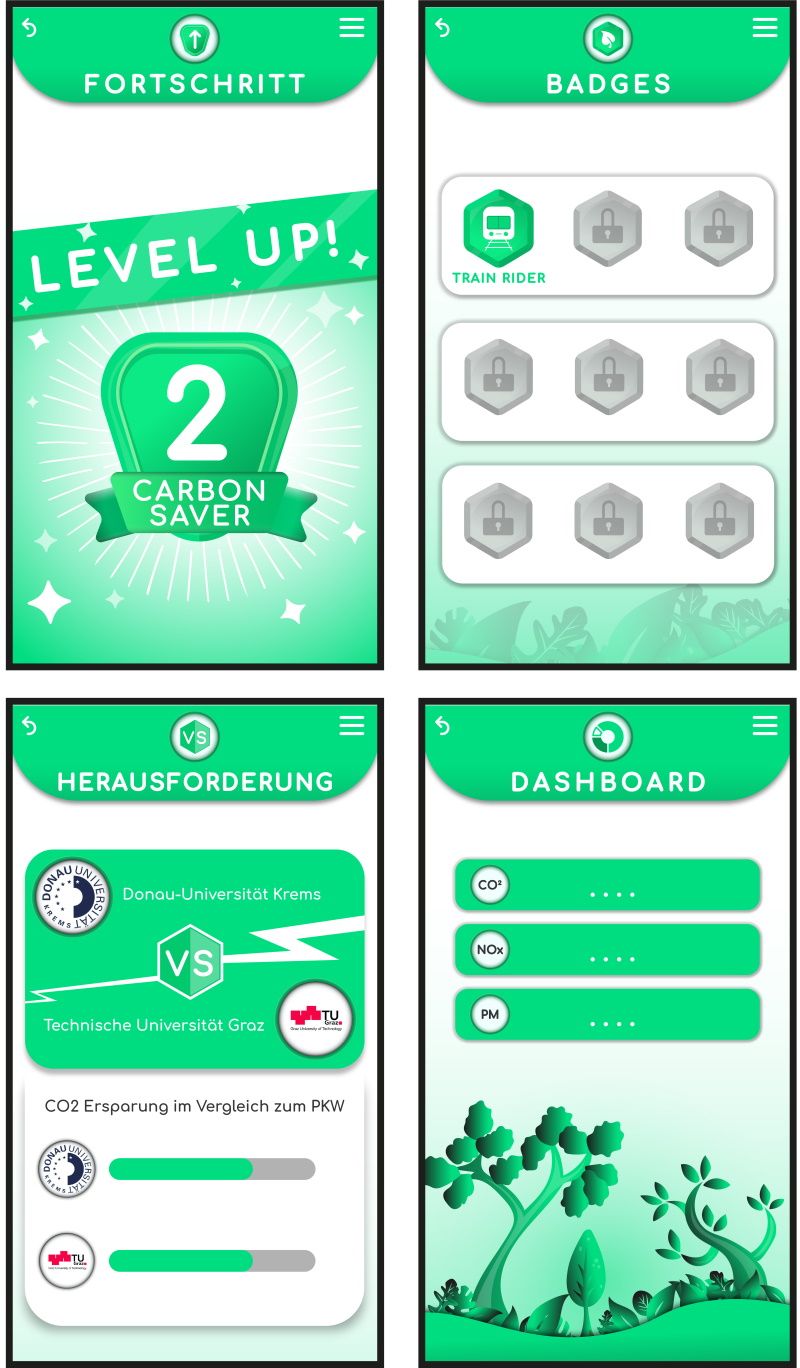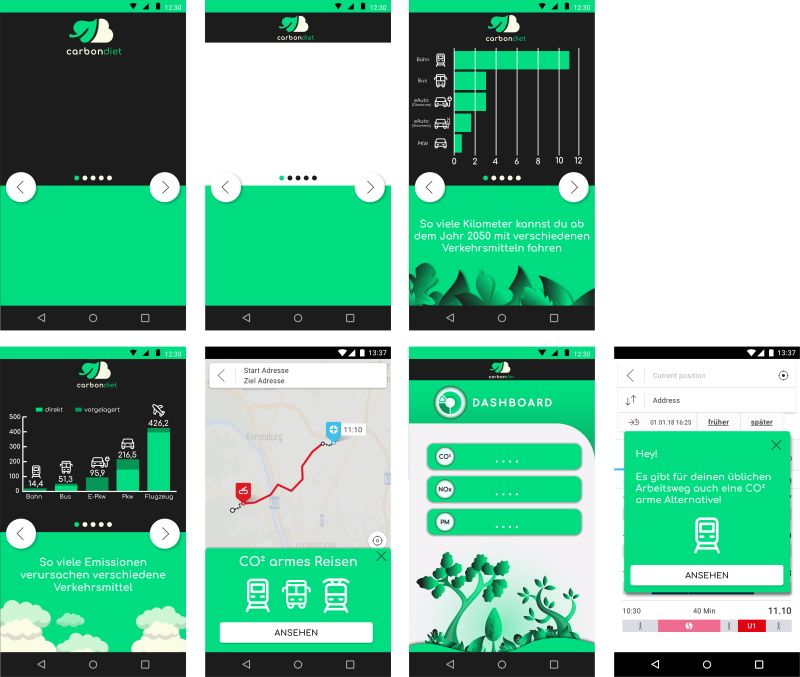In Austria, 1.5 million business trips are made by car. And that is every day. Thus, there is considerable potential for avoiding CO2 emissions. But how do companies and organizations manage to use climate-friendly alternatives, determine the amount of CO2 saved and set concrete savings targets? The CARBON DIET research project is looking for answers. To this end, the consortium of five research partners is testing the concept of so-called individual mobility accounts. An app-based application tool to help people choose the most environmentally friendly way to travel - including commuting and business trips - is being developed. For this, the University for Continuing Education Krems is providing the expertise. Its Center for Applied Game Studies is responsible for implementing blockchain-based CO2 certificate trading. The project is funded by the Federal Ministry for Climate Action, as part of the Research Program Future Mobility and handled by the Austrian Research Promotion Agency.
While the development of greenhouse gas emissions in the transport sector in Austria is relatively unfavorable, it also offers a high potential for savings. Commuting and business trips prove to be an area in which CO2 reduction measures with high impact potential can be applied. The study "Österreich Unterwegs“ conducted by the Ministry of Climate Change found that employees in organizations make around 1.5 million business trips every day. This is where the three-year CARBON DIET research project, coordinated by the Austrian Institute of Technology, comes in and develops a so-called mobility account tool as a mobile app. The aim is to enable companies not only to quantify CO2 savings successes, but also to set concrete savings targets. In this way, distances travelled can be measured and the CO2 emissions assessed.
A playful approach to success
Mobility budgets defined individually for employees serve to "translate" long-term CO2 reduction targets in transport into the concrete current life situation of the people involved. Targets that can be achieved personally in the short term are set out in line with the national CO2 reduction strategy. The road to success will be a playful approach that aims to motivate employees of companies and other institutions such as universities to travel in a climate-friendly way and to put their business travel on a carbon diet, so to speak. Thomas Wernbacher, game researcher and responsible for the research contribution of the University for Continuing Education Krems in the project: „In order to reduce CO2 emmissions successfully organizations need their employees to engage. Playful approaches have proven to be a promising way to motivate people to adopt sustainable behavioral patterns. That is why CARBON DIET relies on gamification in terms of implementing the mobility accounts. We are contributing our expertise in this regard to the project and, with the University for Continuing Education Krems, are also providing a test candidate for testing the application." The Center for Applied Game Studies is responsible not only for the implementation of the gamified framework, but also for the implementation of certificate trading between the universities involved in the project. For this purpose, the particularly energy-efficient blockchain "Ardor" is used.
Prototype as a goal
The project aims to test the implementation of individual mobility budgets for specific use cases. To this end, the researchers are bringing together elements from existing apps with research results in a prototype. The extent to which the application tool is able to change mobility behavior will be tested in a long-term study lasting at least one year. The test candidates are Wiener Stadtwerke, a private company, and the two universities TU Graz and the University for Continuing Education Krems. They will use the tool for business trip planning and recording.
If CARBON DIET proceeds according to plan, concrete business and operator models for the tested use cases will be available in 2023, in addition to the prototype and the impact analysis, as well as assessments for implementation in other use cases.
Carbon Diet: Opportunities for a climate-friendly level of mobility by defining fair individual mobility budgets
Duration: 1.3.2021 - 28.2.2023
Funding: The Austrian Research Promotion Agency (FFG)
Funding Program: Research Program Future Mobility of the Federal Ministry for Climate Action
Project responsibility on the part of the University for Continuing Education Krems:
Thomas Wernbacher, Department for Arts and Cultural Studies, Center for Applied Game Studies
Project collaboration:
Andrea Höltl
Alexander Pfeiffer
Simon Wimmer
Constantin Kraus


